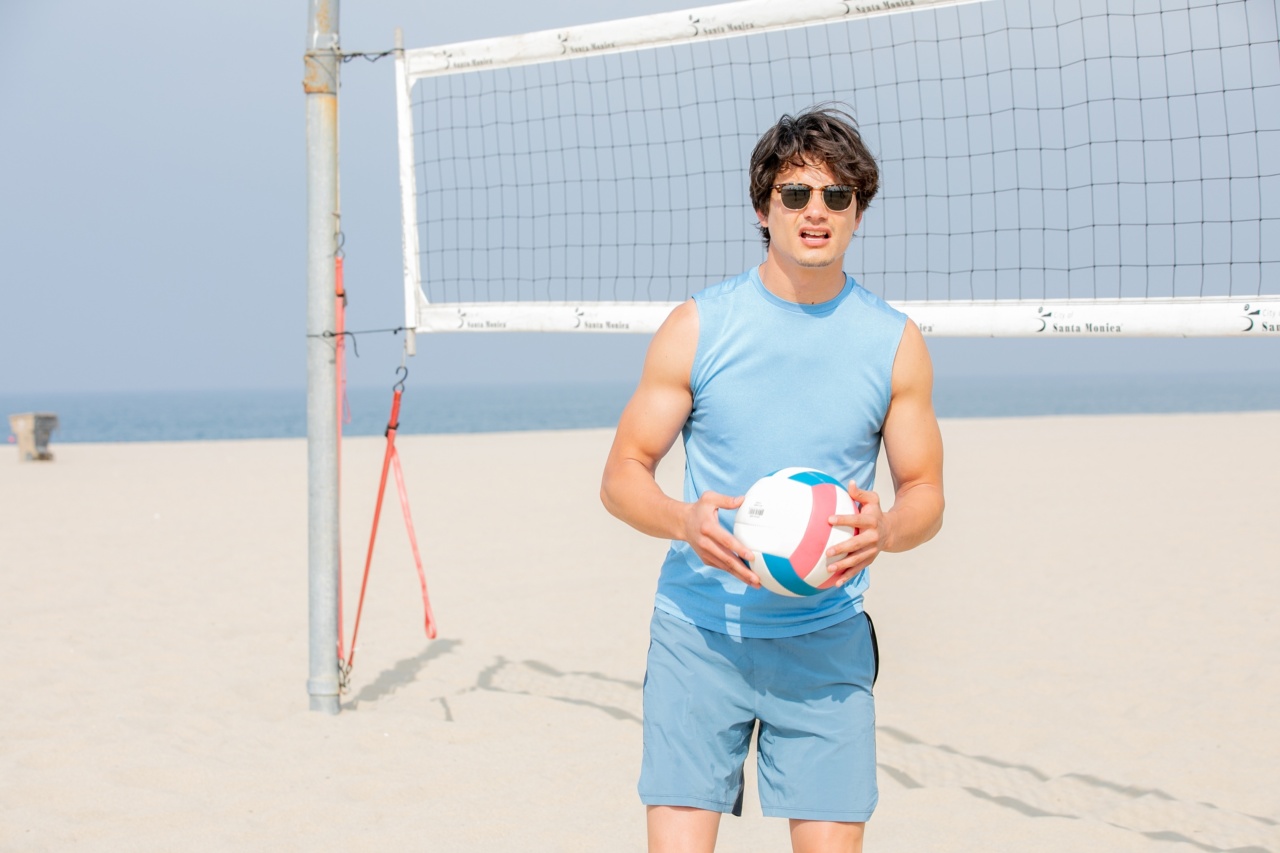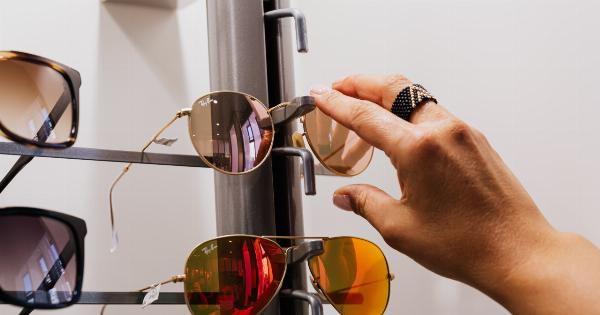When it comes to choosing sunglasses, there are so many options available in the market. It can be overwhelming to navigate through them all.
However, selecting the right sunglasses is crucial for protecting your eyes from harmful UV rays and reducing the risk of eye damage. Here are the top 30 tips to help you find the perfect sunglasses:.
1. Look for 100% UV protection
Choose sunglasses that offer 100% UV protection. Ultraviolet (UV) rays from the sun can cause damage to your eyes including cataracts and macular degeneration.
Sunglasses with 100% UV protection block both UVA and UVB rays and are essential for eye safety.
2. Check for polarized lenses
Polarized lenses cut down on glare and reduce eye strain. They can be particularly useful while driving, playing sports or going to the beach or any other outdoor activities.
3. Ensure the sunglasses fit
The right fit is a crucial factor while selecting sunglasses. The frames should sit comfortably on your face and not be too tight or too loose. Make sure the sunglasses don’t slide off your nose when you move your head up and down or bend over.
4. Look for the right color
The color of the lenses can affect how you perceive different colors. For example, gray lenses are good for reducing brightness without altering color perception while brown lenses enhance contrast, particularly useful while driving.
Choose the colors that best suit your needs and preference.
5. Consider the frame shape
The shape of the sunglasses frame can affect how they look on your face. You could try different shapes and sizes before making a purchase. Look for frames that complement the shape of your face.
6. Consider the lens material
Lens materials vary in terms of durability, clarity and weight. Some common materials include glass, polycarbonate, or acrylic.
Glass lenses are scratch-resistant but heavier than other materials, while polycarbonate lenses are shatter-resistant but don’t have the same level of clarity as glass lenses.
7. Think about your lifestyle
The type of activities you engage in can impact the type of sunglasses you require. If you spend a lot of time outdoors, you might want to consider sunglasses with a wraparound style or with photochromic lenses that get dark in bright light conditions.
8. Look for adjustable nose pads
Adjustable nose pads make it easy to fit sunglasses to your nose properly and can improve comfort.
9. Consider the frame material
Frame materials include metal, plastic and nylon. Metal frames can be stylish and durable but are often heavier than plastic ones. Plastic and nylon frames are lightweight and often more comfortable to wear over long periods.
10. Look for scratch-resistant coatings
It’s advisable to check for scratch-resistant coating because scratched lenses can impair your vision. Some sunglasses have coatings to protect them from scratches.
11. Check the price
The cost of sunglasses varies widely. While expensive doesn’t always mean better quality, it is worth investing in a good quality pair that will last you a while.
12. Consider the color of your skin
The color of your skin can affect how the sunglasses look on you. For example, if you have a warm complexion, you might look best in earth tones or tortoiseshell frames, while cool skin tones look better with blue or pink frames.
13. Try on different styles
Trying on different styles can help you find the ones you like the best. Don’t be shy about trying unusual shapes or colors.
14. Consider prescription sunglasses
Prescription sunglasses are worth considering if you wear regular glasses. Talk to your optometrist for more information and recommendations.
15. Look for a good brand reputation
Reputable brands can provide you with better quality and longer-lasting sunglasses. Do some research to find brands with a good reputation.
16. Check the warranty
Check if there is a warranty included when you purchase the sunglasses. This can help protect against defects or damage.
17. Consider lens coatings
Some sunglasses offer additional coatings to enhance your vision further. These coatings can help reduce glare, repel water or other liquids, and protect the lenses from scratches.
18. Don’t forget about the nose bridge width
The width of the nose bridge can affect how well the sunglasses fit. Make sure the nose bridge fits comfortably on your nose.
19. Look for a comfortable fit
Comfort is a crucial factor to consider while selecting the right sunglasses. Make sure they fit comfortably around your ears and nose.
20. Consider the shape of your face
The shape of your face can impact which style of sunglasses look best on you. Oversize sunglasses can overwhelm a smaller face, while rounder frames can round out a more angular face.
21. Look for photochromic lenses
Photochromic lenses are sensitive to light and can darken in bright light conditions and lighten indoors. They are a great option if you need to transition between different light conditions frequently.
22. Look for anti-reflective coatings
Anti-reflective coatings can help reduce glare and make your glasses more comfortable to wear.
23. Consider the lens shape
Lens shapes can affect how you see the world and how others see you. Oversize lenses can provide more versatility to frame your face or provide better coverage from the sun.
24. Look for durable materials
Durable materials can help your sunglasses last you a longer time. Titanium, acetate and aluminum are all sturdy materials commonly used for sunglasses frames.
25. Ensure the sunglasses sit flat on your face
Sunglasses that sit flat on your face can help reduce pressure on your nose and ears and improve comfort levels.
26. Check for high-quality hinges
The quality of the hinges can impact how long your sunglasses last. Look for hinges that are strong and flexible.
27. Look for a case to protect your sunglasses
A case can help protect your sunglasses from scratches and damage when you’re not wearing them. Look for a sturdy case to keep your sunglasses in good condition.
28. Look for water resistance
If you plan to use your sunglasses while participating in water-based activities such as swimming or water sports, look for water-resistant sunglasses.
29. Choose sunglasses that reflect your personality
Your sunglasses are an extension of your personality. Choose sunglasses that fit your style, whether it be classic, trendy or sporty.
30. Don’t compromise on quality
Don’t compromise on quality while purchasing sunglasses. It’s worth investing in a good quality pair that will last you a while. Good quality sunglasses will protect your eyes better and enhance your vision.























